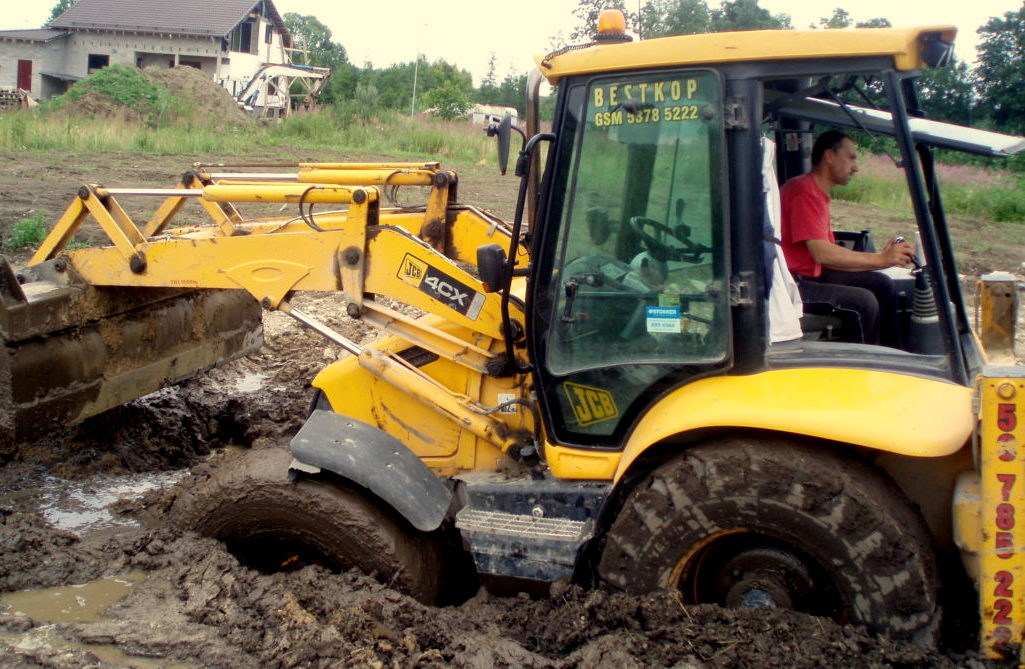Monitoring service hours, GPS tracking of heavy equipment
The logging of operating hours provides the basis for operation and maintenance of heavy equipment. The operating effectiveness and overall condition of a machine is assessed on the basis of the operating hours it has accumulated. Its average fuel consumption is expressed in litres per operating hour.

However, how do you keep track of operating hours, how frequently are the corresponding readings transmitted to the fleet manager and what happens to these data afterwards? Can you really say that you know the work process of your machine so well that you are able to reproduce, if necessary, any time point or time period from its operating history? This could be important since, knowing the details, you will be able to understand historical operating situations correctly and to resolve disputes effectively.
The mere fact that N operating hours were accumulated during the past month does not tell us anything about the effectiveness of those hours. Yet this is what we need to know in order to improve cost efficiency.
The solution is GPS tracking! The GPS tracker monitors the operating status of the machine, always knows the current operating hour count and, what’s even more important, can tell you whether the engine is idling or runs with a heavy load.
With such information, you are able to settle arguments and prevent problems before they occur. At the same time, accurate up-to-date reports are at your disposal any time, just when you need them most. GPS tracking simplifies the management of your equipment, makes it an orderly affair and saves you time.
Increasing the profit margin
It is no news to anybody that competition is stiff in every area of business, making it difficult to earn a profit. In a situation where revenue can grow only so slowly, one should look for more effective ways to keep the expenses in check. In the case of heavy equipment, the largest expense items are fuel costs and depreciation due to wear and tear from operation. GPS tracking effectively keeps an eye on every litre of fuel consumed and every minute spent working.
Preserving value by tracking
“On Metrotec website, I can see exactly how many hours have been spent idling and how much time was spent productively. The GPS device also allows me to pinpoint the exact location of all machines at a given moment. In this way, I get a very clear picture of what is going on at the site,” explains the owner of a rental backhoe company about a particular GPS tracking solution that has benefited his business.
Through the monitoring of engine RPM, it is possible to understand what was done during the working hours and whether it served a useful purpose. It is no longer possible for a driver to leave the vehicle idling while attending to some personal business.
The idle time report clearly shows the estimated amount of fuel wasted and the reduction of the time left before the next scheduled maintenance. When equipment is acquired for the fleet, one also normally considers its reselling options. It is important to note here that a typical 20% idle time automatically reduces the future selling price. By GPS tracking, idle time can be kept under control and its negative effect on secondary market price reduced.
Automated reporting
Reports are unavoidably necessary. They are required for the calculation of employees’ working time and salaries and for the company’s cost accounting. Have you ever thought about the tedium of collecting the necessary data each month, not to speak of the time required for manual data entry? And what if an error should slip in during the entry?! The GPS tracking system records the beginning and end of operating cycles accurately to the second and never makes a mistake adding or subtracting numbers. You will never again have to waste a minute on this drudgery or inflict the unpleasant duty on anyone else. Current reports are always at your disposal, just when you need them most.
Arguments settled, problems prevented
Isn’t it familiar―a client wants to know exactly how much a certain job is going to cost, while it is difficult to accurately estimate the amount of work involved. GPS tracking measures working time faultlessly and makes the process transparent to the client as well if desired. Accuracy is a sign of professionalism on the part of the service provider. Your clients will appreciate this and be more accommodating if you need them to be flexible. It is always possible to check data history to establish when something happened and determine what exactly happened, was it then the beginning or end of work or an idle period, or something else entirely. This will provide for quick and effective settlement of any arguments.
Automated notifications make sure your vehicles never miss an upcoming service
Regular maintenance is key to the long service life of any construction vehicle. Experience has shown that ignoring the regular maintenance schedule tends to lead to hefty repair bills down the road and even to premature termination of the manufacturer’s warranty. If your vehicles miss their scheduled maintenance, you may later be facing thousands of euros of unproductive costs.
Naturally, the maintenance schedule can be created and stored in Excel and many heavy equipment owners indeed do so. However, everyone knows that manual data entry always runs the risk of errors, not to speak of the time-consuming and dull nature of this activity, and missed maintenance may be the consequence.
In this regard, the GPS tracking system functions like an alarm clock, set to alert the persons in charge of an upcoming maintenance obligation. The system always keeps track, serves you without fail 24/7 and never forgets anything or anybody.
How much can you save with a GPS tracking solution?
Just by tracking idle time and reducing it by 10%, we can gain a 10% increase in the residual value of an equipment unit (several thousands of euros). The time that was earlier spent on preparing reports and related imposition on other people’s time is now freed up and amounts to 2-3 hours per equipment unit in a month (100 euros). The fuel savings due to reduced engine idle time amount to 25 euros each month. The benefit gained from timely vehicle services, accurate reports, prevention of problems and resolution of disputes is difficult to translate into money terms.
You may also be interested in:
-
Transfer of data from one system to another
This is handled by Webservice which is a piece of software intended to link up different applications or systems. Webservice comes into play when data gathered by different applications need to be exchanged or when data gathered by one application need to be transferred to another for further post-processing.
Read more -

Century-old navigation devices guiding the racers at Dakar Rally
While GPS accuracy sufficient for street navigation only became available for civilian use in 2000, first attempts at automotive navigation were made almost already centuries ago. For a long time, the devices used were mechanical, replaced by electronic gadgets in late 20th century. Yet, Estonian bikers at the 2017 Dakar Rally have chosen a “stone-age” contraption to guide them.
Read more -

History of navigation and GPS
Modern GPS navigation has been in use but a couple of decades, yet the art of locating one’s position has a history that long predates the advent of the satellites. Nowadays, even among professional mariners, there are those that no longer understand how to navigate without modern instruments. However, even in this age of GPS-capable smartphones and navigation devices, it may come in handy to remember what to do if you are unable to obtain a signal from the sky or the battery of your pocket device has died.
Read more

